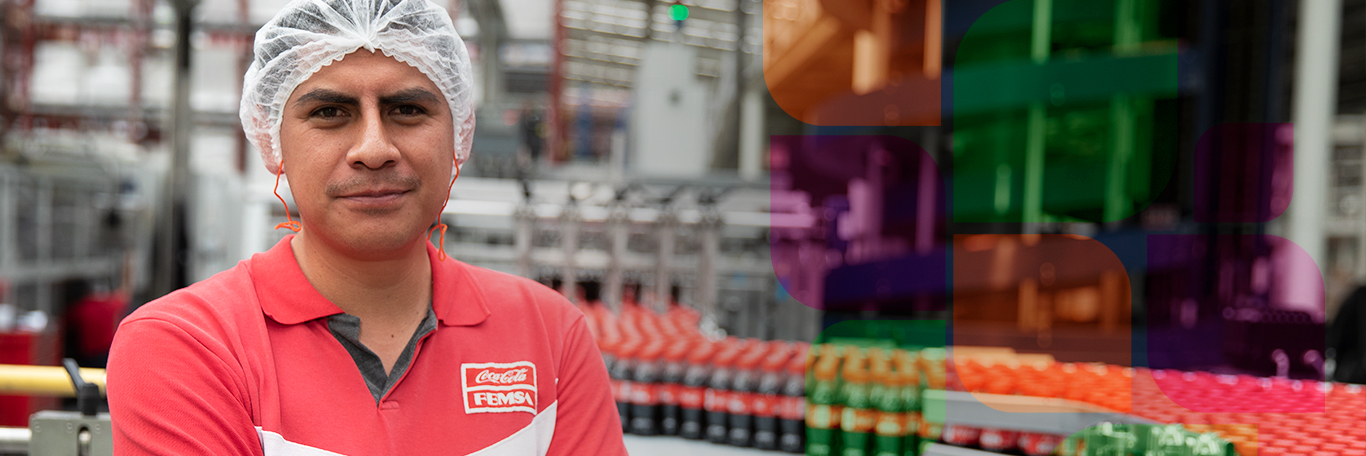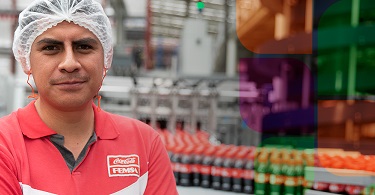Strategy
FEMSA has defined that integrating sustainability into our business models is fundamental to achieve our goals of being a good neighbor, a responsible company, and a corporate citizen that collaborates to face global challenges.
The Business Units adhere to the regulatory frameworks in all of the countries they are present in, creating and satisfying clients’ needs, striving to achieve the professional and personal development of their employees, strengthening the supply chain that sustains them, preserving natural resources and transforming communities, thus generating social value.
Through a collective effort across the different corporate and operational areas, we dedicated hours of time, teamwork and collaboration to identify the main Sustainability challenges of the Business Units, by updating their materiality matrix. This way we were able to channel the necessary and available resources to strengthen the Sustainability Strategy and thus meet the expectations of our stakeholders.
Actions are carried out under a commitment to Our ethics and values and Governance focusing on those issues in which we can generate the greatest impact in the three of the Sustainability Strategy: Our People, Our Planet and Our Community
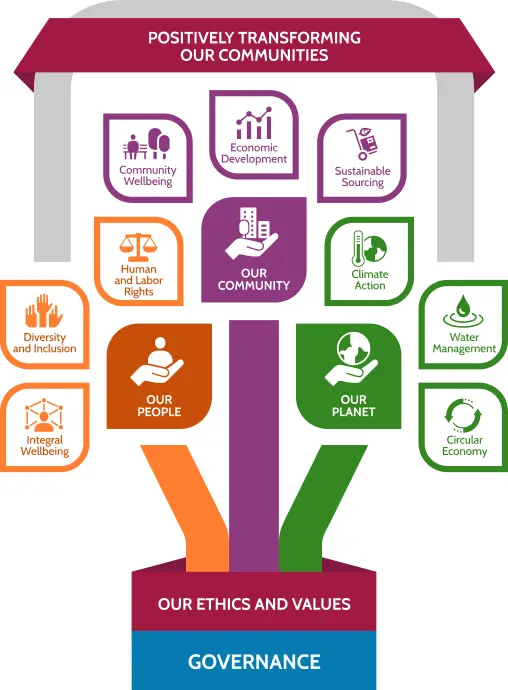
Sustainability Strategy objectives
For FEMSA, Sustainability is the ability to generate the social, environmental, and economic conditions to operate in the present, and to continue growing in harmony with the environment and society.
The sustainability strategy objectives replicate the aspiration of our Business Units and our dedication to customer satisfaction. We strive to provide outstandingservice to our consumers, to support our collaborators in achieving their personaldevelopment, to preserve our environment and to conserve natural resources for future generations, as well as to reinforce our commitment to support the communities in which we operate.
Our People

We are committed to our team’s integral development; generating respectful, inclusive, and collaborative work environments; providing dignified working conditions that constitute an essential support for their well-being.




For more information on our priority topics, please visit the Our People page.
Our Planet
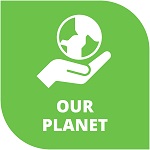
We are committed to contribute to the care of the environment, minimizing the environmental impact of our operations throughout the value chain, as well as that of our products and services.


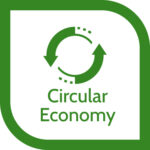

For more information on our priority topics, please visit the Our Planet page.
Our Community
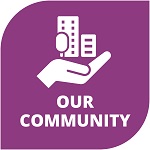
We are committed to contributing to the economic and social development of the communities in which we operate, seeking to generate prosperity and well-being in them.




For more information on our priority topics, please visit the Our Community page.
Corporate Goals
We have a long history generating long-term economic value for our shareholders, while being a responsible company and corporate citizen. To act in response to current challenges, and fulfill our mission of generating social value, we have set ambitious corporate goals on our priority topics of greatest importance to our businesses and stakeholders.
To comply with the Sustainability Strategy and its commitments, FEMSA has integrated sustainability metrics, rewards and incentives for the Executive team, corporate directors and middle management, that focus on the generation of social value including both environmental and human capital issues.
The Sustainability metrics, rewards and incentives are associated with climate change, circular economy, water management, human rights, among other priority topics, including the achievement of corporate goals. This ensures that Sustainability-related ambitions and targets are aligned throughout the company and that executive management is accountable and leading our vision.

Our People

Human and Labor Rights Corporate Goal
Workplace survey rating in the top 10 against benchmark of high-performing companies.

Integral Wellbeing Corporate Goal
8.7 million hours of training per year for our workforce.

Our Planet

Climate Action Corporate Goal
85% of renewable energy use across all our operations by 2030.

Water Management Corporate Goal
Achieve a Neutral Water Balance in all our operations by 2030.
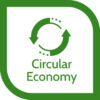
Circular Economy Corporate Goal
Zero waste from operations to sanitary landfills by 2030.
These ambitions and goals reflect global issues and trends where we believe FEMSA can support global efforts such as the Paris Agreement and the UN Sustainable Development Goals (SDGs), further reflection of our commitment to help build a future.
Our corporate goals help us maintain our commitment to positively transforming our communities.
For performance and progress on our goals, please visit our 2020 Annual Report
Risk Management
We have a presence in different countries and regions of the world, so we are exposed to risks inherent to the sectors in which we participate. Our business units have a comprehensive risk management process with a structured approach that helps them identify, manage and mitigate current and potential risks.
Our operations are subject to diverse laws and regulations in all jurisdictions where we have a presence same that impose increasingly stringent standards of protection to the environment such as greenhouse gas emissions, water effluents, use and management of hazardous waste, and employee health and safety.
In a global and constantly changing business environment, risk management is a strategic and important issue for stakeholders. Our ability to manage risks that arise in the environment in which we operate is vital to creating value for our business.
For more information related to our risk management process, please visit our financial fillings.
Stakeholder Engagement
FEMSA’s Business Units are responsible for attending their stakeholders, who make sure that the subjects and channels of dialogue that are relevant to them are identified, in this way we aspire to improve our relationship with them, as well as our processes, products and services.
At FEMSA, we understand the relevance of seeking to engage with our stakeholders; therefore, we are currently working on this process, which includes the identification of stakeholders, relevant topics, the establishment of communication channels and feedback mechanisms.
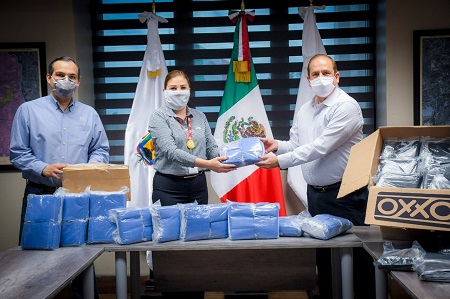
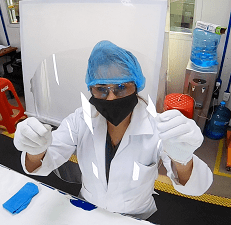
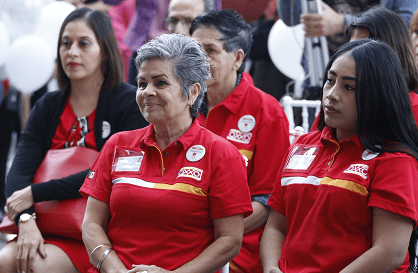
Engaging with our stakeholders is essential to understand their expectations, needs and concerns in order to propose concrete solutions with them. With this in mind, we have developed various communication tools to establish direct points of contact with them, in addition to holding face-to-face meetings in different cities around the world. The results of this dialogue are incorporated into the strategic planning process and help us to refine the Sustainability Strategy.
Our stakeholder engagement process includes three phases:
1. Identification: In this step we define an integrated process, the premises or criteria for inclusion and the main drivers for performing the materiality analysis.
2. Prioritization: With the information derived from the previous step, it was possible to identify the relevant aspects for FEMSA and its stakeholders. Nowadays, these issues are part of the Sustainability Strategy.
3. Validation: Determining the Sustainability Roadmap.
Below is a list of our stakeholders, the main issues identified and the communication channels:
| Stakeholders | Annual Assembly | Organizational Climate Diagnostic Survey | Form 20-F | Forums and Crongresses | Annual Report | Anonymous Complaint Line | OXXO Listens Line | MARRCO | Website | Suppliers website | Quarterly Results | Visits to plants and operations | Main topics of interest |
|---|---|---|---|---|---|---|---|---|---|---|---|---|---|
| Shareholders and investors | Sustainability performance and financial information | ||||||||||||
| Customers and consumers | Technical assistance and sales, job opportunities, information on products and services, customer satisfaction and responsible sales | ||||||||||||
| Collaborators and their families, Labor Union | Work conditions and benefits, personal and professional development, business philosophy, diversity and inclusion, annual negotiation, collective agreement, productivity, responsibility with the community and occupational health and safety | ||||||||||||
| Community | Job opportunities, donations and sponsorships, sustainability strategy, safety and health in operations, and information on products and services | ||||||||||||
| Suppliers | Sustainable sourcing, billing and collection, delivery dates, payment dates, and presentation of product and service proposals | ||||||||||||
| Government authorities and business associations | Sustainable supply, water, changes in legislation, community development, carbon emissions, healthy lifestyles, and transport | ||||||||||||
| Civil society organizations | Support, donations and sponsorships, community development, healthy lifestyles and environment | ||||||||||||
| Media | Financial information, sustainibility performance and institutional positioning in conjuncture issues | ||||||||||||
| Educational Institutions | Strategic alliances and supports, donations and sponsorships |

